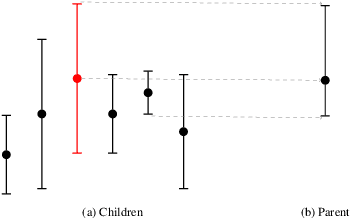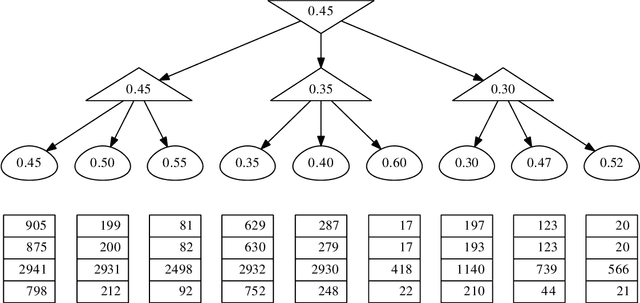Monte-Carlo Tree Search by Best Arm Identification
Paper and Code
Nov 06, 2017


Recent advances in bandit tools and techniques for sequential learning are steadily enabling new applications and are promising the resolution of a range of challenging related problems. We study the game tree search problem, where the goal is to quickly identify the optimal move in a given game tree by sequentially sampling its stochastic payoffs. We develop new algorithms for trees of arbitrary depth, that operate by summarizing all deeper levels of the tree into confidence intervals at depth one, and applying a best arm identification procedure at the root. We prove new sample complexity guarantees with a refined dependence on the problem instance. We show experimentally that our algorithms outperform existing elimination-based algorithms and match previous special-purpose methods for depth-two trees.
 Add to Chrome
Add to Chrome Add to Firefox
Add to Firefox Add to Edge
Add to Edge